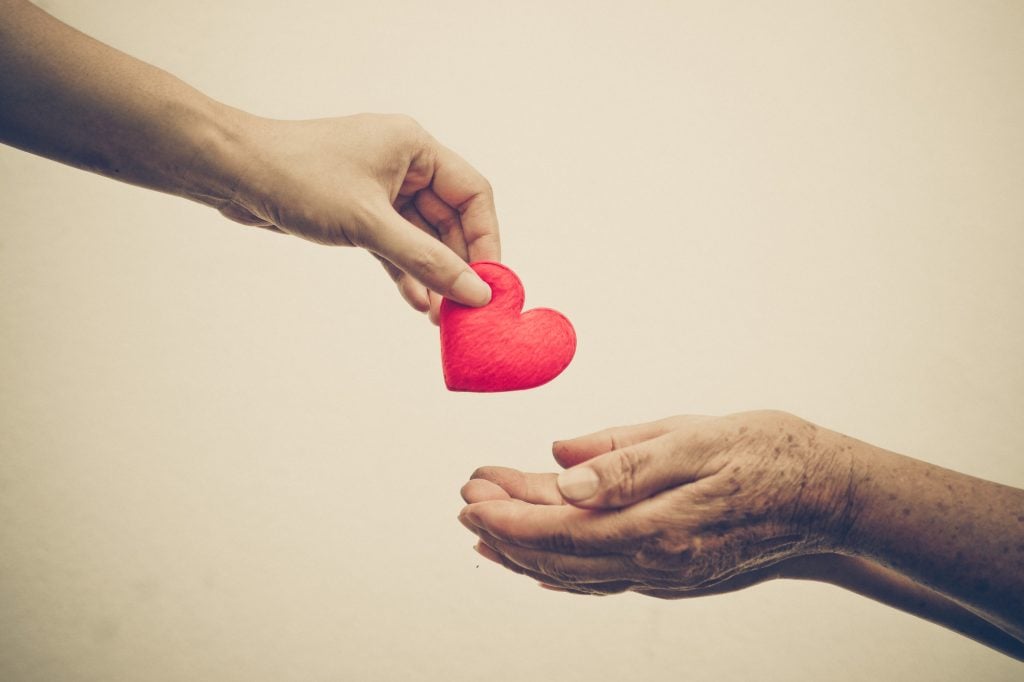Earlier this week, I politely told an elderly woman to mind her own business.
It felt awkward and yucky, but I felt it needed to be said.
The woman was observing a snippet of my life, while my 8 year old son who has disabilities was having a very difficult time as we came inside from skiing.

His feet were super cold and he was hungry. And when he is not feeling settled, he has a hard time expressing it calmly. He was speaking aggressively, not listening, and though not yet at a full-blown tantrum, this was clearly imminent.
The women shared her disgust with what was going on non-verbally, by making some very loud “tsk-tsk” sounds and shooting us repetitive dirty looks.
This is not the first time that I have been faced with a lack of compassion in this type of a situation.
As a mom to two children who have disabilities which lead to challenges in emotional regulation and social skills, behaviour challenges are not uncommon. It happens at home, and it awkwardly happens in public.
I have been shot many dirty looks. I have been yelled at by a stranger, who, at the top of her lungs, screamed that I was a terrible mother. I have been told that if this was their child, the child would never behave this way.
This type of judgment presupposes superiority.
The person decides to get involved in a situation that does not particularly concern them – but not in a helpful way. They decide to become involved simply to let me know that I am doing it all wrong, or that they disapprove of my decisions. The underlying message here is that they would do better.
The intent is to try to make me and my child feel ashamed.

Back when my kids were young, this type of judgment of my parenting skills used to set me off in a quick downward spiral. Although I rationally knew that my kids’ needs are super challenging and that we are doing a fairly decent job of dealing with it, emotionally, it left me feeling as if I actually was a terrible parent.
I used to let their judgment of me substitute for my own.
My body would instantly burn with shame, just like they wanted it to. My compassion for my child would disappear. In a quick leap, I would become frustrated and impatient with my struggling child.
Everything in me felt the need to prove to these random strangers that I am a good mom, that I am worthy.
I tried to get them to understand. But let’s face it… they never do. Because they never wanted to in the first place.
Today, when I told the “tsk”-ing grandmother, “he has disabilities”, she replied “he has disabilities and he is having a tantrum. One has nothing to do with the other”.
They actually do, but that is besides the point.
The point is that when you enter into an interaction assuming that you know everything about the other person and what they are facing… well… there’s just nowhere to go from there.
When people are so deeply set in their beliefs, there is nothing that can be said for them to even consider seeing the situation differently.
The only way that this interaction could have been resolved to this woman’s satisfaction would have been if I had used my own feelings of shame to fuel my response to my son. Instead of trying to understand what was bothering him and offer him strategies to calm him, I would have in turn shamed him for his behaviour.
What if we all decided that if we notice someone struggling and decide to get involved, rather than shaming that person, we choose to extend a helping, compassionate hand? Imagine what that world would look like.

Imagine if this woman had turned to me and said “he looks like he’s having a tough time, do you need a hand?”. Or “parenting’s tough, isn’t it?”. Or if she had turned to my son and gently said “you look like you’re really upset about something”.
How would that have changed the interactions?
How differently would the scenario have unfolded had she metaphorically leaned across the table to hold my hand, instead of putting her hands up and shoving me across the room?
The difference is astounding.
I invite each and every one of us to remind ourselves regularly that struggle is part of the human condition. We may think that we would do better than the other person, but the reality is that we never truly know exactly what is going on if it is not about us.
Let’s remind ourselves of this when we see someone struggling in any situation. Let’s replace judgment and disconnection with empathy and connection. Let’s all lean across that table and reach out our hand, instead of shoving the other person across the room.
Instead of thinking about how the other person could do things differently, let’s think about how we could do something differently. It might just be exactly what the other person needs to help them through their struggle.
If you liked this post, you may also like:
Does Fear Hold You Back from Saying What Needs to Be Said?
Holding Space: The Value of True Listening
10 Stress-Busting Daily Mindful Moments



